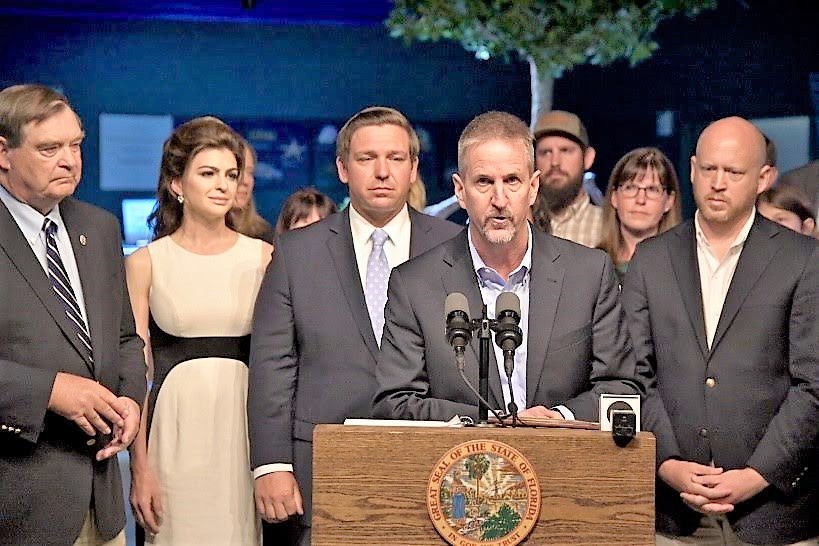With a lifelong love of the marine environment and a B.S. from Humboldt, Tom Frazer (‘86, Fisheries Biology) is ready to face Florida’s biggest environmental challenges as the state’s first chief science officer.
The position—the first of its kind in the nation—was created as part of Florida’s efforts to address mounting environmental issues, including widespread algal blooms fueled by excessive nutrient inputs. For Frazer it’s an opportunity to put his years of experience as a research scientist to work in a state that in January committed $2.5 billion to improve water quality.
Frazer, a confessed fishing devotee, grew up in the San Diego area and was drawn to HSU by the unique opportunity to study his fascination at the undergraduate level. Once at Humboldt, he learned from experienced faculty, including Professor Ted Kerstetter. Frazer credits Kerstetter with teaching him how to think. “He taught me how to ask appropriate questions and encourage creative ways to address them,” says Frazer. “You knew all the professors by name, and they pretty much had open door policies.”
Frazer remembers the department’s hands-on approach led to jobs at Blue Lake’s Mad River Fish Hatchery and the U.S. Fish and Wildlife Service’s Fisheries Assistance Office in Arcata. Both were launching pads to a career that most recently included serving as the director of the School of Natural Resources and Environment at the University of Florida. “I always wanted to make sure that I found a position that made a difference,” Frazer says. “That was an ethic from HSU that has continued to stick with me.“
From his new post, Frazer is in the unique position to help those shaping Florida state policy make informed decisions about issues ranging from Everglades restoration to sea level rise. “There is a lot of information out there,” he says. “It’s important to harness that information, simplify it, provide it to individuals responsible for making policy, and carry out management actions. The science is intended to inform those policy decisions.”

